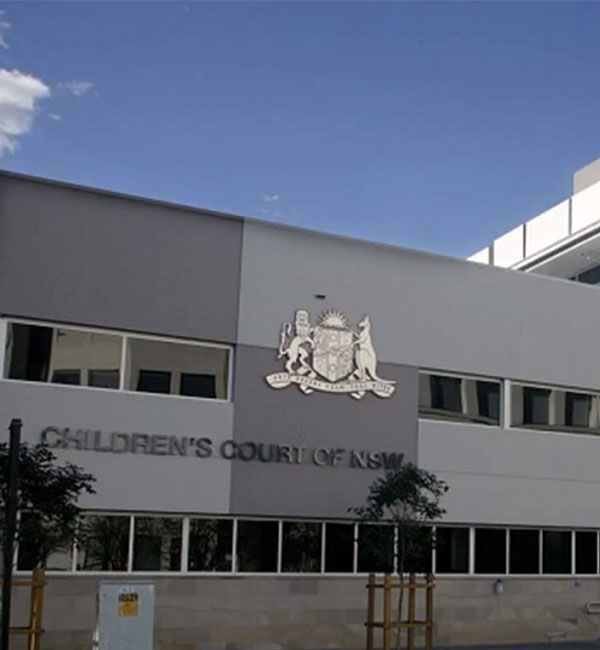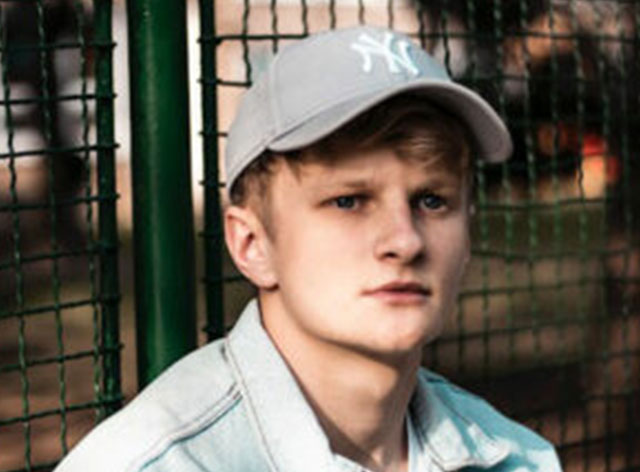Children’s Court for Under 18’s

In NSW, the Children’s Court sits in three courthouses specifically designated for the Court. These courthouses are located at Parramatta, Surry Hills and Broadmeadow. The Children’s Court is a specialist court to deal with criminal cases, applications for apprehended violence orders, as well as other matters concerning children.
The Children’s Court also sits at courts located at Campbelltown, Port Kembla, Sutherland, Nowra, Woy Woy and Wyong on a permanent basis. In regional and rural areas outside these locations the Children’s Court sits on a regular basis. At these locations the sittings of the Children’s Court usually coincide with the sittings of the Local Court and are conducted by Local Court Magistrates.
Children’s Courts are run quite differently to other Courts. They are slightly less formal, so as to be less intimidating for children and young persons.
There are 13 specialist Children’s Magistrates, who are appointed for periods of up to five years. Children’s Magistrates are selected from the general pool of Magistrates appointed having regard to their knowledge, qualifications, skills and experience in dealing with children, young people and their families.
There are also Magistrates known as Non-Children’s Court Magistrates. In locations where a specialist Children’s Magistrate is not available, Children’s Court cases are dealt with by Local Court Magistrates.
Serious Criminal Offences Committed by Children and Young Persons
Not all cases involving children are dealt with in the Children’s Court. Matters that are “strictly indictable” – i.e. would not be heard in the Local Court if an adult committed the offence – are not heard in the Children’s Court. The Children’s Court hears the committal proceedings initially, but the matter is then transferred to the District Court or Supreme Court, where the child or young person will be tried as an adult. The age of the offender, will, however, be taken into account as a relevant factor if the offender pleads, or is found, guilty.
Criminal Cases Heard in the Children’s Court
The NSW Children’s Court deals with the following types of criminal cases across NSW involving children and young people:
- Criminal cases in which the defendants were under 18 years of age at the time of the alleged offence.
- Traffic cases where the defendant is not old enough to hold a driver’s licence or permit, or where the Children’s Court is already dealing with other related criminal offences.
- Applications for Apprehended Violence Orders where the defendant is under 18 years of age.
- Breaches of parole and in some cases the eligibility of children and young persons for release on parole.
How Does the Children’s Court Process Work?
 When a child or young person is charged by police with an offence they are provided with a Court Attendance Notice indicating the details of the offence, the location, the date and time the case will be listed before the Children’s Court. Usually the case is listed about three weeks ahead. However, if the police have refused bail the case will be listed as soon as possible, usually the same or the next day.
When a child or young person is charged by police with an offence they are provided with a Court Attendance Notice indicating the details of the offence, the location, the date and time the case will be listed before the Children’s Court. Usually the case is listed about three weeks ahead. However, if the police have refused bail the case will be listed as soon as possible, usually the same or the next day.
On the first day the child or young person will have the opportunity to obtain legal advice about their case from the Legal Aid/Children’s Legal Services duty lawyer. If after obtaining legal advice the child or young person enters a plea of guilty the magistrate may impose a penalty on the same day. However, sometimes the magistrate will adjourn the case to obtain a background report from Juvenile Justice to assist them in determining the most appropriate penalty.
If a plea of not guilty is entered, the case will be adjourned for the police to prepare and serve a ‘brief of evidence’. This will include statements from witnesses and other material the police are going to rely on to prove that the offence has been committed by the child or young person.
If, after the evidence is served, the young person maintains his or her plea of not guilty, the court will adjourn the matter for a defended hearing where witnesses will give evidence and the magistrate will make a decision whether the child or young person is guilty or not guilty of the alleged offence.
What Types of Orders Can be Made by the Children’s Court?
If the magistrate determines that the child or young person is not guilty of the offence the case will be dismissed. If the magistrate determines that the child or young person is guilty there are different types of penalties that can be imposed depending on the seriousness of the offence and the circumstances of the child or young person including any previous criminal record. The types of orders that the Children’s Court can impose when a child or young person is found guilty of an offence are:
- dismissal with or without a caution
- caution
- fine
- good behaviour bond
- probation order
- community services order
- control order (which may be suspended depending upon the circumstances) placing the child or young person in detention.
All children and young persons are entitled to representation by Legal Aid/Children’s Legal Services. There is no charge for this representation.
However, if you require private legal representation for a criminal matter in the Children’s Court, call our very experienced Children’s Court Lawyers – Criminal Lawyers Sydney and Suburbs – on (02) 9533 2269.
[/bt_bb_text]
[/bt_bb_column][/bt_bb_row][/bt_bb_section]
